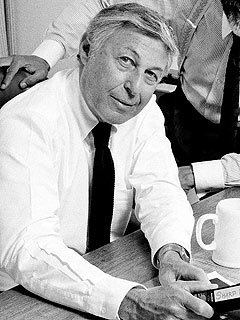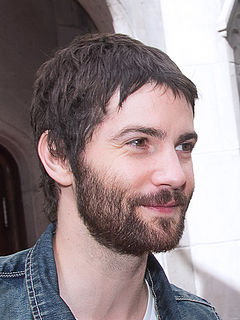Цитата Пауло Коэльо
Борхес говорил, что можно рассказать всего четыре истории: историю любви двух людей, историю любви трех человек, борьбу за власть и путешествие. Все мы, писатели, переписываем одни и те же истории до бесконечности.
Связанные цитаты
Сам акт повествования, упорядочивания воспоминаний и вымыслов в соответствии со структурой повествования свят по определению. Мы рассказываем истории, потому что ничего не можем поделать. Мы рассказываем истории, потому что любим развлекать и надеемся назидать. Мы рассказываем истории, потому что они заполняют тишину, которую навязывает смерть. Мы рассказываем истории, потому что они спасают нас.
По причинам, которые я не могу логически объяснить, во всех фильмах, в которых я снимался, я заканчивал тем, что делал истории любви того или иного рода, и мне кажется, что истории любви чрезвычайно зависят от препятствий, которые вы можете преодолеть. место между любовниками. Без него не бывает любовной истории.
Все, что нужно, чтобы понять моего деда, лежит между двумя историями: историей о жене тигра и историей о бессмертном человеке. Эти истории текут, как тайные реки, через все остальные истории его жизни — о днях моего деда в армии; его большая любовь к моей бабушке; годы, которые он провел хирургом и тираном университета. Одна, которую я узнал после его смерти, — это история о том, как мой дед стал мужчиной; другой, который он рассказал мне, о том, как он снова стал ребенком.
Каждый из нас состоит из историй, историй не только о себе, но и историй о предках, которых мы никогда не знали, и людях, которых мы никогда не встречали. У нас есть истории, которые мы любим рассказывать, и истории, которые мы никогда никому не рассказывали. Степень, в которой другие знают нас, определяется историями, которыми мы решаем поделиться. Мы выражаем глубокое доверие кому-то, когда говорим: «Я собираюсь рассказать вам то, чего никогда никому не говорил». Обмен историями создает доверие, потому что благодаря историям мы приходим к пониманию того, как много у нас общего.
Когда мы умираем, эти истории все еще на наших устах. Истории, которые мы будем рассказывать только незнакомцам, где-нибудь в уединенной камере полуночи. Эти важные истории мы годами репетируем в своей голове, но никогда не рассказываем. Эти истории - призраки, возвращающие людей из мертвых. Лишь на мгновение. В гости. Каждая история — призрак.
Греки использовали одни и те же истории, одну и ту же мифологию, время от времени, разных авторов. Оригинальному рассказу не уделялось должного внимания, да и Шекспиру тоже. Многие люди писали пьесы о великих королях. Они не ожидали совершенно новой истории. Это было то, что новый автор сделал из старой истории. Сейчас, наверное, то же самое. Мы маскируем это, придумывая то, что кажется новыми историями, но на самом деле это одна и та же история.
Какая разница, если мы рассказываем одни и те же старые истории? ...Истории рассказывают нам, кто мы есть. На что мы способны. Когда мы выходим на поиски историй, мы, я думаю, во многих отношениях идем на поиски самих себя, пытаемся найти понимание своей жизни и людей вокруг нас. Истории и язык говорят нам о том, что важно.





































